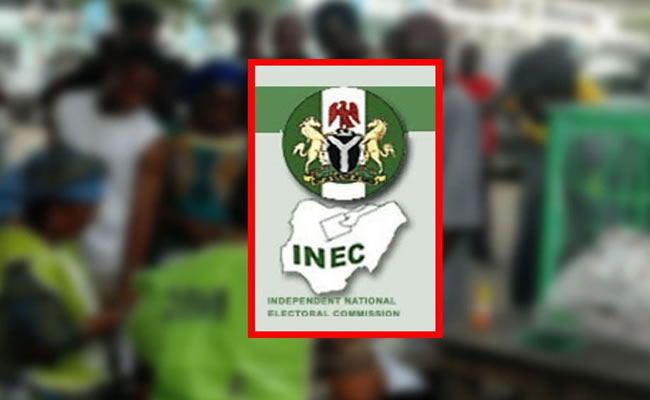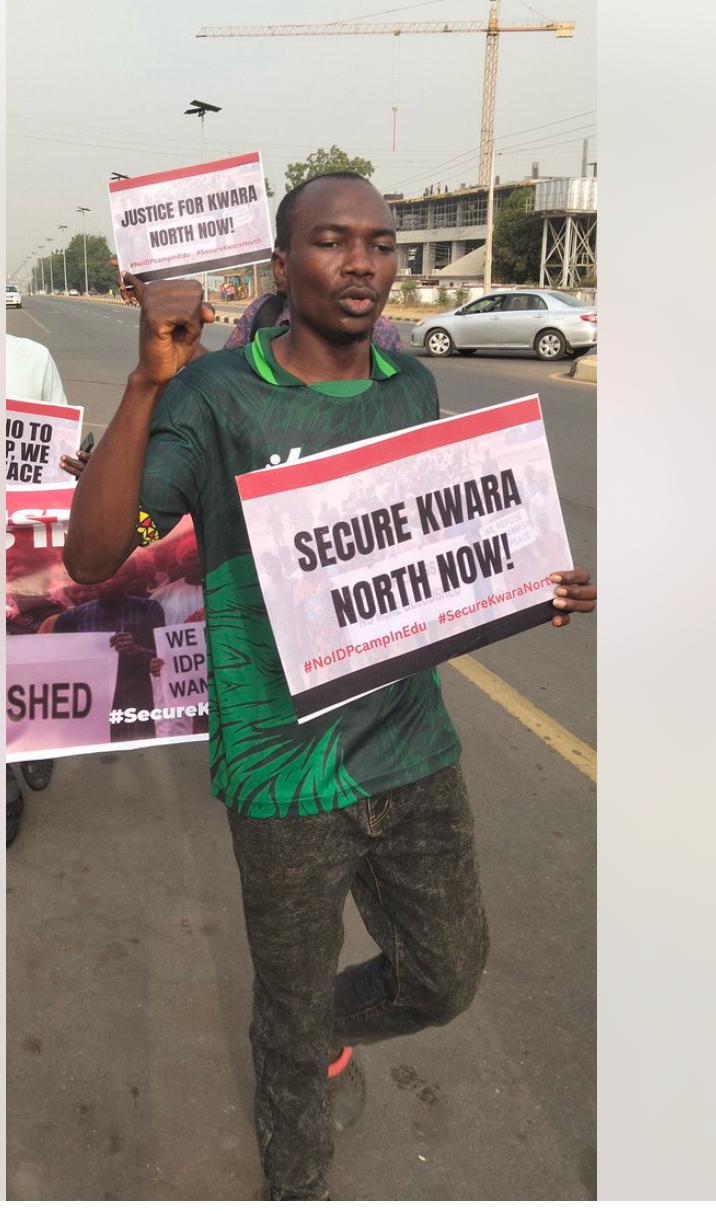INEC insists Al-Mustapha represented AA, not excluded from election

BY ORIAKU IJELE
The Independent National Electoral Commission (INEC) has told the Presidential Election Petition Court (PEPC) sitting in Abuja that retired Maj. Hamza Al-Mustapha was the duly sponsored presidential candidate of Action Alliance (AA) in the Feb 25 election.
INEC, through its team of lawyers led by Abubakar Mahmoud, SAN, insisted that though Al-Mustapha participated in the election, he was defeated, alongside16 other candidates, by Sen. Bola Tinubu, the All Progressives Congress (APC) candidate.
The commission stated this in its reply to a petition marked: CA/PEPC/01/2023 filed by AA and Solomon-David Okanigbuan, the 1st and 2nd petitioners respectively.
The petitioners had dragged INEC, APC, Tinubu and Hamza Al-Mustapha to court as 1st to 4th respondents respectively.
Al-Mustapha, a former CSO to late Gen. sani Abacha, was a factional presidential candidate nominated by Kenneth Udeze-led leadership of AA for the poll.
Okanigbuan also emerged as factional presidential candidate of the Adekunle Omo-Aje-led leadership of AA.
While INEC recognised and published Al-Mustapha’s name as the party’s presidential candidate, Okanigbuan’s name was not uploaded by the commission for the poll.
The petitioners, however, alleged that their candidate was excluded from the presidential poll, based on which the election should be voided.
Responding, INEC decsribed the petition as being incompetent, praying the court to dismiss it.
The commission argued that the petition was not only fundamentally defective but was irredeemably bad.
It said that the petitioners alleged unlawful exclusion of thier presidential candidate from the poll.
The electoral umpire argued that even though the ground of non-compliance with the provisions of the Electoral Act, 2022 was a valid ground for questioning an election, “there are no facts upon which the alleged non-compliance is predicated (by the petitioners) thereby rendering the complaint vague, bare, academic and vexatious.”
It submitted that having fully participated in the Feb. 25 election and having fielded Al-Mustapha (4th respondent) as its presidential candidate and scored 14,542 votes, AA (1st petitioner) lacked the locus to question the election on ground of wrongful exclusion.
“The 2nd petitioner (Okanigbuan) having not participated in the election, subject matter of this petition cannot validly question the election by the instant petition or otherwise.
“By virtue of the above, the petitioners have no locus standi to maintain this petition or complain about the election on ground of wrongful exclusion,” it said.
INEC said though it admitted that AA was a registered political party in the country, it disagreed that Okanigbuan was its sponsored candidate.
It averred that AA, through its National Executive Committee (NEC), nominated and forwarded the name of Al-Mustapha (4th respondent) as its presidential candidate for the election.
It said that it would rely on the nomination forms submitted by the party, nominating Al-Mustapha as its candidate for the poll during the trial of the petition.
“The 1st petitioner (AA) had two factions, namely: One faction chaired by Barr. Kenneth Udeze whilst the other faction has Sir Adekunle Rufai Omo-Aje as its chairman.
“Whilst not in the know of the leadership tussle within the 1st petitioner, the 1st respondent (INEC) received and published the nomination of candidates for the 2023 General Election submitted by the Barr. Kenneth Udeze-led faction of the 1st petitioner.
“The nomination referred to in (b) above included the nomination and sponsorship of the 4th respondent as the presidential candidate of the 1st petitioner for the election.
“The 1st respondent published the nomination and details of the 4th respondent as the presidential candidate of the 1st petitioner for the election and not the 2nd petitioner,” it said.
The commission argued that it was the political parties that contest elections and not candidates.
INEC insisted that the election was free, fair, credible and in compliance with the 1999 Constitution (as amended) and the Electoral Act, 2022 and other relevant laws and guidelines for the conduct of the poll.
It further said that the declaration and return of Tinubu was lawful and there was no basis for the nullification of same or ordering fresh election to be conducted.
The commission also prayed the tribunal to dismiss separate petitions filed by the Action People’s Party (APC) and the Allied Peoples Movement (APM) against Tinubu’s victory.
NAN reports that APP had sued Tinubu, APC and INEC to court as 1st to 3rd respondents respectively in its petition number: CA/PEPC/02/2023.
APM, in its petition marked: CA/PEPC/04/2023, joined INEC, APC, Tinubu, Kashim Shettima and Kabir Masari, who stood as vice-presidential placeholder during the primaries before he was substituted with Shettima, as 1st to 5th respondents respectively.
The parties are challenging the outcome of the presidential election on the grounds of alleged substantial non-compliance with the electoral laws as well as INEC’s guidelines.
The APM is contending that Tinubu was not qualified to contest the election on the grounds of the alleged double nomination of his vice-presidential candidate.
It is also questioning Tinubu’s candidacy on the grounds of the substitution of the initial placeholder, Kabir Masari with Shettima.
In its preliminary objection, INEC argued that APP’s petition was predicated on facts unknown to law, urging the court to dismiss it.
It also described APM’s petition as being “incompetent.”
It argued that the ground of the petition challenging Tinubu’s election on the validity of his nomination bordered on pre-election matters pursuant to the provision of Section 29 (5) of the Electoral Act, 2022.
The commission, therefore, said that the case was statute barred, which divested the tribunal the requisite jurisdiction to entertain it.
According to INEC, issues relating to qualifications of candidates as the basis of validity of nominations in any election are pre-election matters instituted at the Federal High Court, before elections are conducted following the publication by the 1st respondent (INEC) of the list of candidates for elective positions.
“That the petitioner did not file any action against the nomination and/or qualification of the 3rd respondent (Tinubu) at the Federal High Court to ventilate its grievances within the time allowed by law.
“That equally, the petitioner lacks the locus standi to question the validity of the nomination of the 3rd and 4th respondents (Tinubu and Shettima) pursuant to Section 29 (5) of the Electoral Act, 2022.
“In view of the above, this Honourable Tribunal lacks the requisite jurisdiction to entertain this petition,” INEC said
It also stated that APC validly sponsored Tinubu and Shettima as presidential and vice presidential candidates in the poll.
READ ALSO: Oborevwori ready to hit the ground running on May 29…
It argued that Masari’s withdrawal as the nominated running mate of the president-elect did not affect the validity of Tinubu’s candidacy by virtue of the simultaneous substitution of Masari, the placeholder, by Shettima.
It further argued that APC duly substituted Masari with Shettima as vice presidential candidate.
The commission argued that prior to the nomination of Shettima as the new vice presidential candidate of APC, he was the party’s candidate for Borno Central Senatorial election.
It said prior to his nomination as the new vice-presidential candidate, Shettima had, by a letter dated July 6, 2022, communicated his withdrawal as APC’s candidate for the Borno Central Senatorial poll to the party, and that the party forwarded the notice of the withdrawal to the commission.
INEC, therefore, said that APM’s petition was frivolous and constituted an abuse of court process.
It urged the court to dismiss it with substantial cost.
Follow us for more news update follow us on www.dailytimesng.com










